There is a lot of very helpful information out there about the toxic train derailment that occurred in East Palestine, Ohio: how it happened, what chemicals were released, etc.
But I’ve been asked several times what we can actually do about it in a practical way.
Although there are still a lot of questions that have not been answered and many things that are outside of our control as individuals, there are certain things you can do (both long-term and short-term) to protect yourself and your family as much as possible.
To be sure: I wholeheartedly believe that people should not have to deal with this. We should be protected from chemical disasters like this, the same way citizens of Flint and Cape Fear and Love Canal and Ecuador, etc. should have been protected from similar environmental crises.
However, I know many people are looking for things they can do that are actually within their control. So, this article is meant to be helpful for people in and around East Palestine, those living downstream from the disaster (such as myself), as well a those in other parts of the country who just want to help. I will be updating this article if and when more info and resources become available.
The information in this article should not be taken as medical advice. You should always consult with your doctor about any health concerns and/or before making changes to your diet or lifestyle. Additionally, this article contains affiliate links, which means we may earn a commission if you decide to make a purchase. All of the products recommended have been personally used and vetted.
Monitor your water source.
If you live in East Palestine or the surrounding area (a ~20 mile radius), you may want to use as much bottled water as you can (not only for drinking but also cooking, cleaning, and bathing). Despite the fact that officials have said this water is safe to drink, you may want to take a more precautionary approach until we have more updated information.
If you live more downstream of the water flowing from East Palestine area, your municipal water companies should be regularly monitoring the water supply for the specific chemicals of concern such as vinyl chloride.
For example, Greater Cincinnati Water Works (which is where my water comes from) has been conducting tests about every two hours to see if the four main chemicals released from the train have been detected in the water yet. (You can see those results here.) Greater Cincinnati Water Works says they will continue to test for the foreseeable future.
How do you know if you live downstream from the spill? This helpful interactive map from USGS can help you trace water downstream. Here’s a screenshot of where water goes from East Palestine:
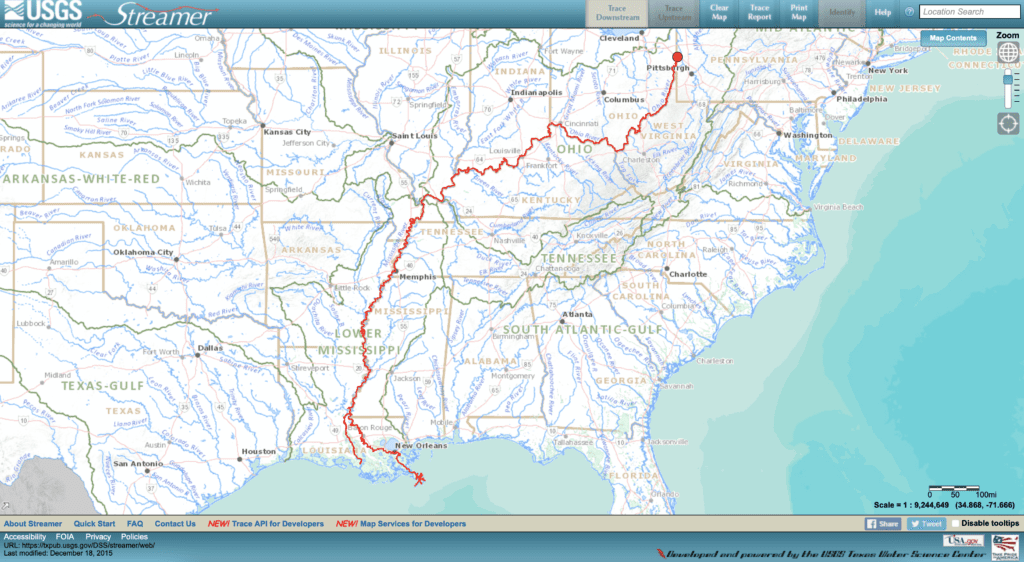
So if your water comes from somewhere along that red line, you may want to check with your municipal water supply and make sure they have proper monitoring procedures in place.
As the water flows downstream, it will become more diluted, so the general risk decreases.
The good news is that most municipal water sources already monitor and filter out vinyl chloride. This is not a new chemical and there are national limits that municipal water suppliers are technically supposed to meet.
If you’re curious, you can check EWG’s Tap Water Database to find out if your water supplier has exceeded guidelines for vinyl chloride in the recent past. EWG reports that from 2017 to 2019, there were 60 utilities in 19 states that exceeded the health guidelines for vinyl chloride in the water, but zero were found to be above the legal limit.
The other chemicals released from the train in East Palestine are not as widely tested on a regular basis, so if you want to know about those ones, you may need to check with your water utility.
What if you have well water?
If you are in East Palestine or the immediate vicinity and are on well or spring water, it’s a good idea to test your water. It’s currently unknown what the impact of this chemical release will have on well water, so in a situation like this, more testing is generally better.
Norfolk Southern is providing free well water testing, which you can find out about here or by calling the Norfolk Southern’s Family Assistance Center at 1-800-230-7049.
If you’d rather test the water yourself, My Tap Score has an at-home water test that looks for 60 different VOCs, including vinyl chloride.
How often should you test? Unfortunately, no one really knows. Be sure to pay attention to local news and local groundwater sampling reports so that you know chemicals are detected in the groundwater near you.
If you have not gotten test results yet or are unsure if you should, consider drinking and using bottled water as a precautionary measure until you have more information.
What about air quality?
Unfortunately, the conventional air quality report you get from your weather app is not very helpful in this situation, presumably because they’re not looking for the specific chemicals of concern.
If you live in or near East Palestine and have not had your home’s air quality tested, you can call the Ohio EPA at (330) 849-3919 or Norfolk Southern at 1-800-230-7049 to request air monitoring.
If you’d rather test your own air, you can use an at-home air quality test such as Home Air Check. If you do decide to get your own air quality test, just make sure it tests for volatile organic compounds (VOCs).
Consider staying inside.
Usually, opening the windows and getting fresh air is recommended, since under normal circumstances, indoor air quality tends to be worse than outdoor air quality.
However in this instance, it may be better to stay inside (and keep pets inside if possible) while filtering your indoor air.
Filter your air and water.
Filtering your air and water is always a good idea, but of course is especially important during environmental crises like this one.
Vinyl chloride appears to break down in the air within a few days, whereas it takes much longer to break down in the water. The NIH says that “”biodegradation half-life of vinyl chloride in aerobic and anaerobic waters was reported as 28 and 110 days, respectively,” meaning that it could take 30-90+ days for the vinyl chloride in the water to be reduced by half (if it’s not filtered out).
Many people in East Palestine and the immediately surrounding areas are drinking and using bottled water for now (despite the fact that officials are saying the municipal water is safe to drink). From a precautionary standpoint, this is probably a good idea, especially if you get your water from a well, spring, or other source that is not tested or filtered before it reaches your home.
As mentioned earlier, water utilities downstream from East Palestine should already be filtering out vinyl chloride from water supplies, but if you’d like to have more control over your water, you may want to filter it yourself.
Activated charcoal and aeration filters are the main types of filters that can remove or reduce VOCs like vinyl chloride. This is good news because it means even simple and affordable water filters like a Brita or the ones in your refrigerator will be at least somewhat helpful in reducing these chemicals if they’re in the water.
For a more comprehensive water filter, you may choose a multi-stage water filter such as AquaTru. (This will remove or almost remove not only VOCs but also other impurities in the water such as PFAS and heavy metals.)
Regardless of what kind of air / water filter you use, this is a good time to check to see if they need replaced. Think about all of the different filters you may have in your home, including:
- Under-the-counter or whole-house water filters
- Refrigerator water filters
- Countertop or pitcher water filters
- HVAC filters
- Stand-alone air filters
During environmental crises like the chemical release from the Norfolk Southern train, you want to make sure your filters are fresh and replaced when necessary.
Keep in mind that VOCs such as vinyl chloride can vaporize into the air at room temperature. This means that you can ingest them not only by drinking but also by showering, cooking, doing dishes, etc. (Boiling water to try and get rid of the chemicals is not advised because boiling water with VOCs will not get rid of them, but rather release them into the air where you can breathe them in.)
For this reason, filtering your indoor air is never a bad idea, either. Just like with your water filter, you should look for a carbon filter for the air as well, which can deal with VOCs like vinyl chloride. AirDoctor is a great option that can also nearly eliminate other toxicants like mold, viruses, and particulate matter. (And it’s easy to move from room to room if you need to.) Austin Air Systems is another great option; their filters have even more carbon in them.
Here are some additional recommendations from AirDoctor: The “four pollutants are reduced by the VOC filter in the AirDoctor. If possible, during a time of high VOC exposure, remove the HEPA filter in AirDoctor and replace it with a second carbon filter. Depending on the level of VOC exposure, you may want to replace your carbon filters more frequently. Once the emergency event has ended, replace the VOC carbon filter with a new one, as the carbon may be “deactivated” due to the adsorption of the VOCs.”
Lastly, those who swim or fish in the bodies of water surrounding East Palestine and downstream areas may want to refrain from doing so for now. Again, stay alert to local news and water monitoring.
Support your body.
There are so many unknowns with this crisis, and the unfortunate truth is that we probably won’t know the full extent of the damage until years from now.
While there are certain things that are within your control as an individual (like monitoring and filtering your air and water), there is a lot you cannot control now that these toxins have been released. Therefore, you’ll want to do what you can to support your body’s natural detoxification systems.
Here are some practical things you can do to help your body combat these and other environmental toxicants:
- Focus on getting as much high-quality sleep as you can. During sleep, our bodies do a lot of repair and rejuvenation, which includes flushing toxins that could build up and cause problems down the road. Of course, being well-rested will also help you think clearly and manage stress and anxiety in the short-term as well.
- Get cancer-fighting antioxidants in your diet. This includes things like berries, nuts, vegetables, and green tea.
- You may even consider providing extra support with a quality multivitamin or supplementation, like glutathione (a great antioxidant) or liver-supporting herbs. (But again: you should talk to your doctor before starting new supplements. It’s not always right for everyone.)
- Support your gut mmbiome with prebiotics and probiotics. These can come from food (like onions, garlic, kimchi, and sauerkraut) or via a high-quality synbiotic. Our intestinal cells also have detoxification system and fostering a healthy gut microbiome can make sure those are working properly.
- Make sure you’re drinking enough and going to the bathroom regularly. (Our body primarily gets rid of toxins through urine and excrement.) (Pre- and probiotics can help with this, too!)
- Try to limit additional inflammatory substances such as alcohol, tobacco, and overly processed foods.
- Try to decrease exposure to other toxicants in your environment through personal care and cleaning products. This can help decrease your overall body burden and give your liver and kidneys less work to do.
- Stay active. Exercise can help rid of certain toxicants through sweat and reduce overall inflammation that can lead to disease (including cancer). Of course, exercise can be very beneficial for mental health during stressful times as well.
Manage stress.
I cannot stress enough how important this one is.
It goes without saying that times like these can be extremely stressful. You may feel fear for the current and future health of yourself and your loved ones. You may feel anger toward the people who could have prevented this disaster. You may be confused and anxious, unable to trust authorities on matters of safety.
All of those types of feelings are incredibly valid.
So while you allow and express these feelings, also keep in mind that chronic stress can be toxic to your health as well. Try to implement whatever stress management techniques are helpful for you. This may include things like:
- Gathering with members of your community for emotional and physical support
- Taking a break from news and/or social media
- Physical movement / exercise
- Breathing exercises, meditation, or prayer
- Playing or snuggling with a pet or loved one
- Escaping through books, TV shows, or movies
- Talking to a therapist
- Singing, dancing, or listening to music
- Reassessing your to-do list and de-prioritizing things that don’t need to be done right now
- Any of these other self care ideas
Talk to your doctor.
Those who live in East Palestine and the surrounding areas may want to talk to their doctor about screening options so that if there are negative health impacts as a result of these chemical exposures, they can be detected as early as possible.
This is especially true for people who may be more vulnerable to effects to carcinogens, such as those who have had cancer in the past, immunosuppressed individuals, the elderly, and kids. This also includes those who have worked more directly with the chemical release, such as firefighters.
Document as much as you can.
Documentation could be very important in the future, both for gathering scientific data and for potential lawsuits. If you live in or near East Palestine, it’s a good idea to write down things like:
- Any and all symptoms you observe in yourself, your family members, your pets, and/or farm animals
- Any testing you do (either on your air, water, or body)
- Things you smell, taste, or see that seem out of the ordinary
- Information or tests from doctors appointments
Write down times, dates, who was present, and as many details as possible.
Don’t let our representatives forget about this.
The worst part about this disaster is that it could have been prevented and it is essentially a(nother) story of corporate greed and uniparty corruption.
This train should have never been labeled as non-hazardous and it should have had a proper breaking system that kept it from being derailed. This crisis should have never happened, but we can hope that at the very least, it leads to real change.
You can do things like pay attention to independent journalists and citizen activists who are willing to report the truth, regardless of which political parties are implicated. You can call and write to your representatives (regardless of which state you live in) and demand they change the regulations on hazardous materials ad also support railroad unions (who tried to sound the alarm about this issue months go). You can search for community activist groups in your area that are joining forces to demand change.
Make a donation.
If you live outside of the affected area and want to do something else to help, you can consider donating to a fundraiser that has been set up to help those who have been most heavily impacted by the Norfolk Southern train derailment and chemical release in East Palestine. This includes OH and PA residents, animals, and first responders.
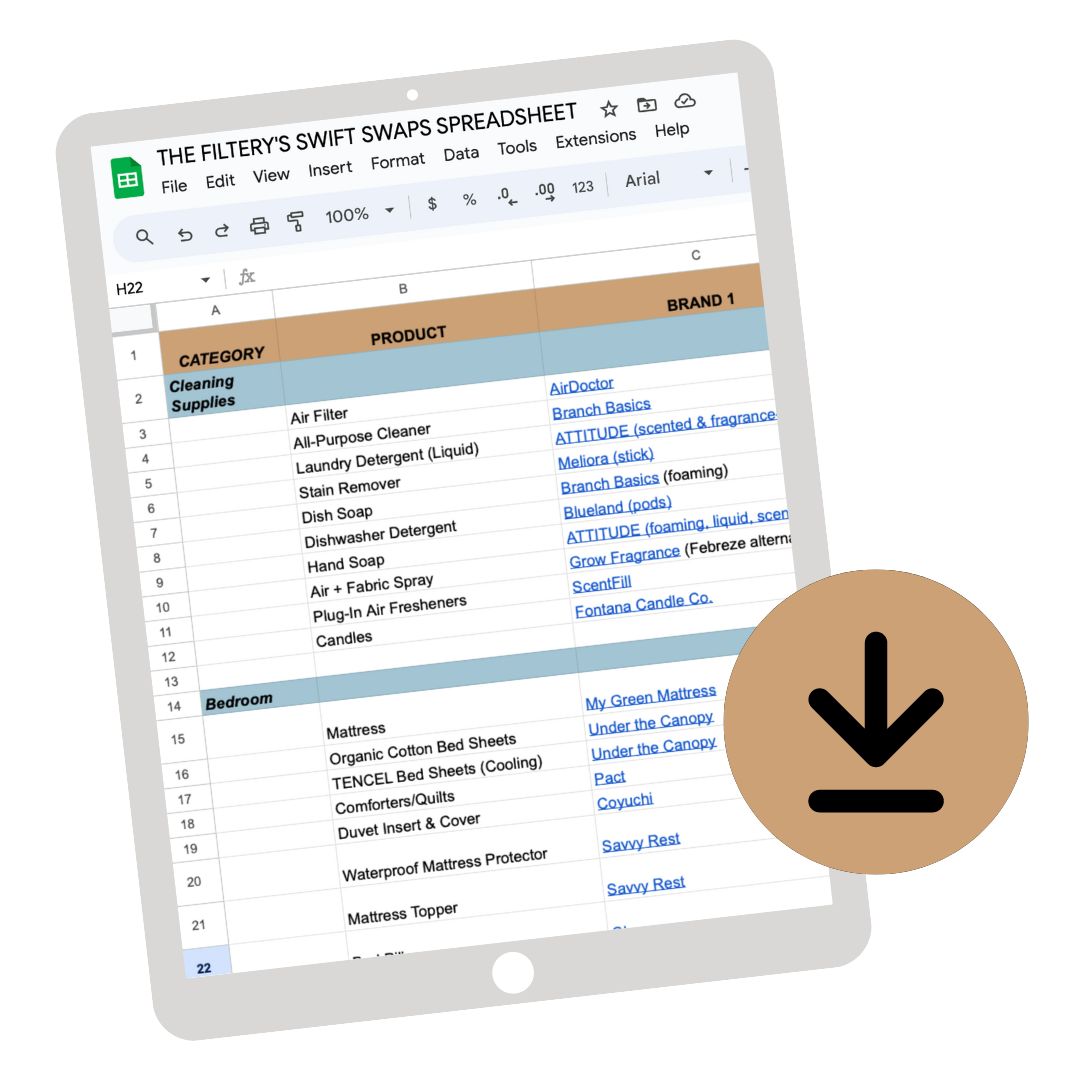
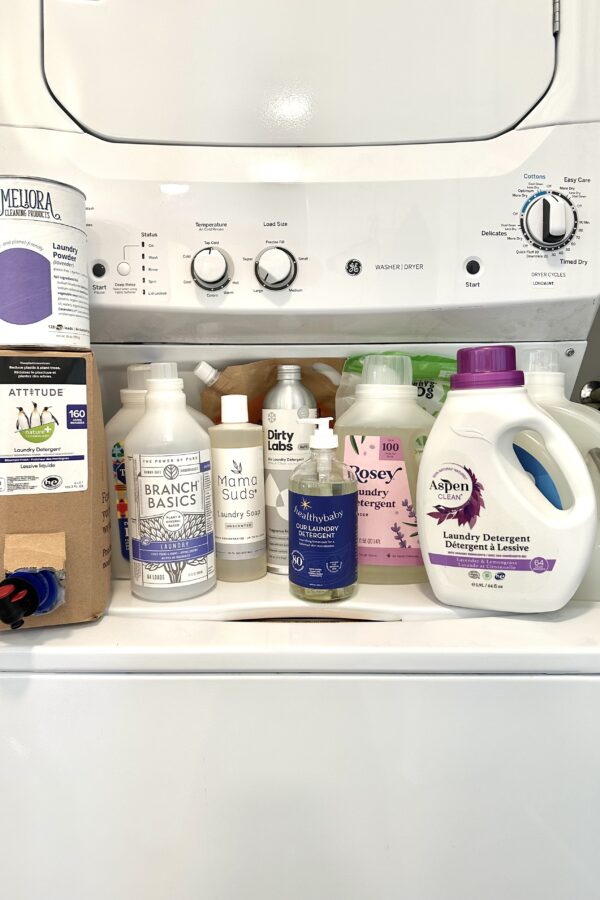

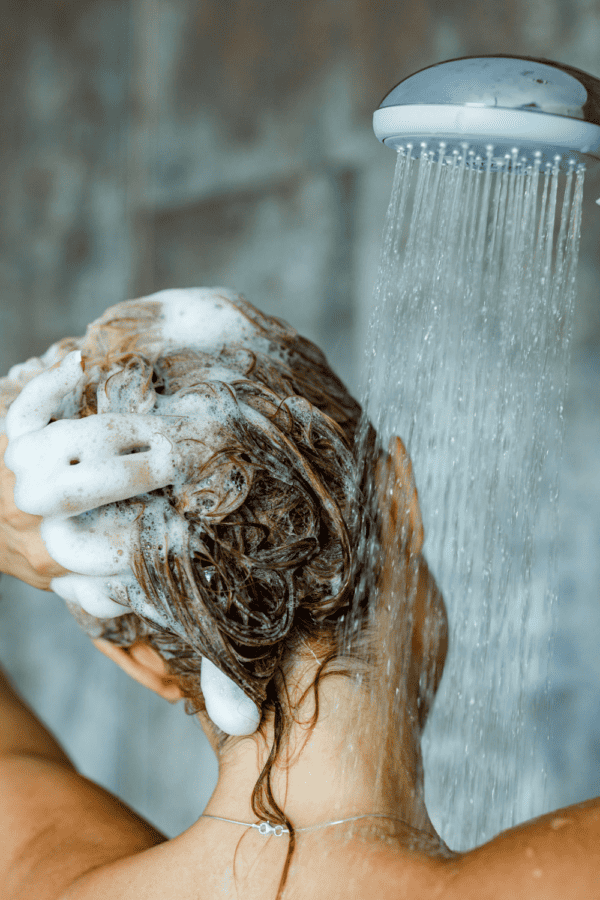
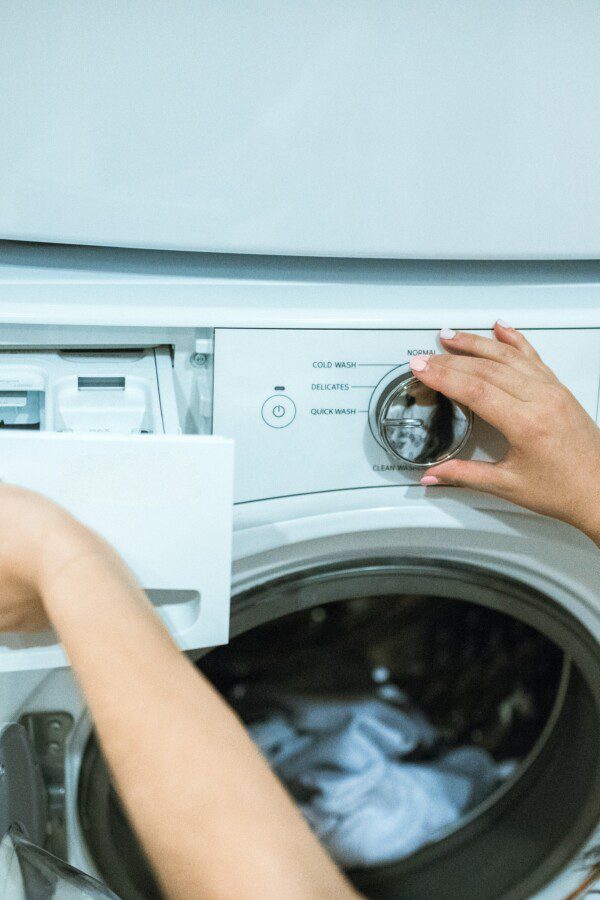
Aquatru only removes PFOA/PFOS. Is this the best it gets in terms of consumer water filters “removing PFAS” or are there better filters out there that remove more/most PFAS chemicals?
Hi Phil,
Great question. There are over 9,000 different kinds of PFAS, and it’s not necessarily realistic for filtration companies to test for all of those since it’s quite expensive. The testing for PFOA/PFOS (which are two of the most common types of PFAS) essentially represents the filter’s ability to filter out the whole family of chemicals. Since the chemicals are built in a very similar way, it’s assumed that if the filter can reduce one or two kinds, it can also reduce the others. I hope that helps!
WOW! a click on uniparty corruption was the news that was to the point in covering this disaster and pulled no punches. The sad thing is that this one incident is only a tip of the iceberg as it applies to every aspect of “our” government. This reporter did the best job of reporting I’ve ever seen.